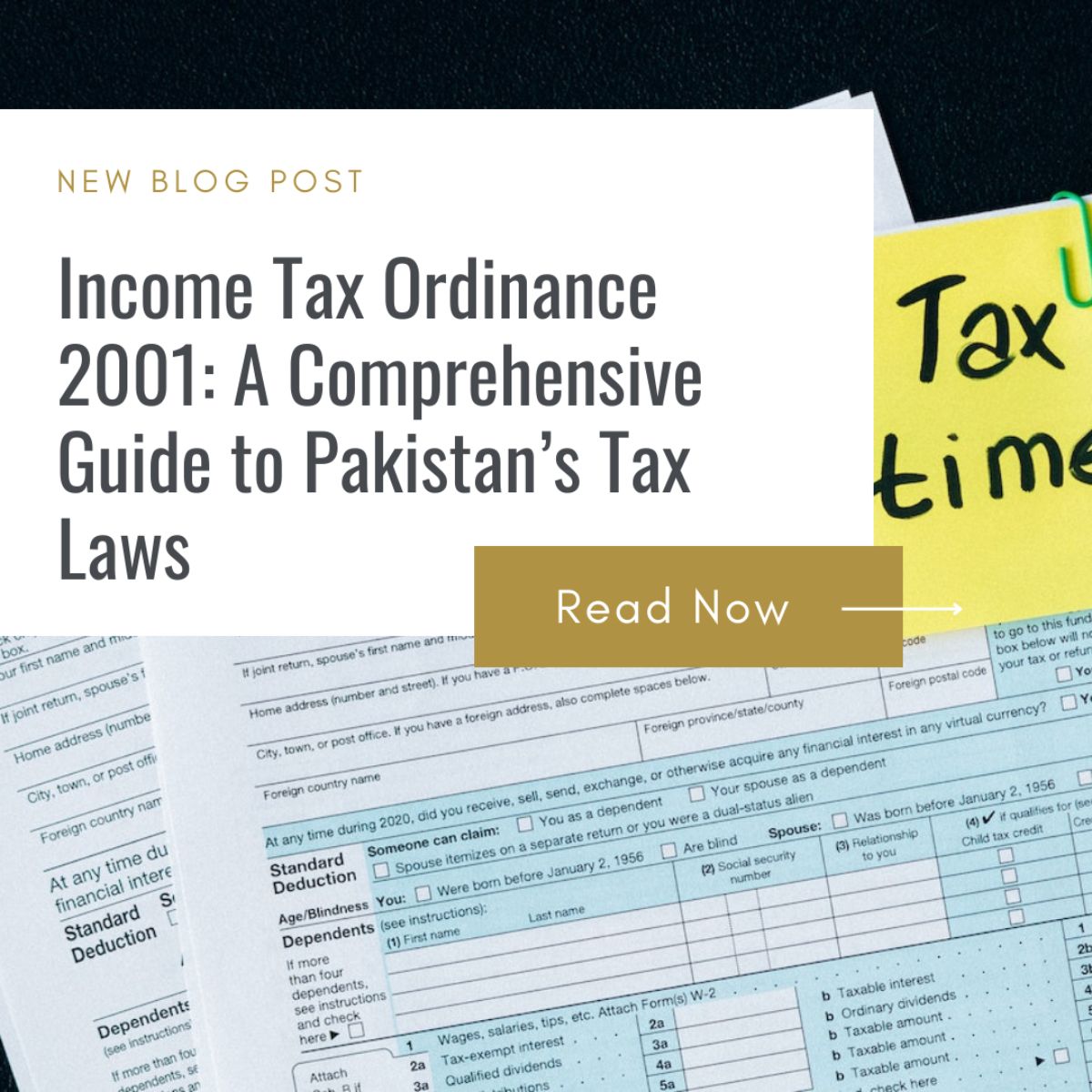The Income Tax Ordinance 2001 (ITO) is an important piece of legislation that governs the income tax system in Pakistan. It is implemented to simplify and streamline the tax structure in Pakistan. The ITO provides a framework for the assessment, collection, and administration of income tax in Pakistan.
It is highly important to understand the key provisions and principles in the Income Tax Ordinance 2001 as these are essential for individuals, businessmen, accountants and tax professionals to ensure compliance with tax regulations and fulfill their tax obligations.
In this article, we will explore the main features and highlights of the Income Tax Ordinance 2001.
Income Tax Ordinance 2001

1. Scope and Applicability
The Income Tax Ordinance 2001 applies to all individuals, companies, associations of persons (AOPs), and other entities deriving income in Pakistan.
It encompasses various types of income, including salary, business or professional income, capital gains, rental income, dividends, and interest income. The ordinance sets out the rules and procedures for the assessment and taxation of these income sources.
2. Taxable Income and Tax Rates
The Income Tax Ordinance 2001 employs a progressive tax system, where tax rates increase with higher income levels. The ordinance defines the concept of taxable income as the total income of an individual or entity, less any allowable deductions, exemptions, or tax credits.
The tax rates applicable to different income brackets are specified in the ordinance, and these rates may vary for different categories of taxpayers, such as individuals, AOPs, or companies.
3. Filing of Tax Returns
The ordinance mandates the filing of annual tax returns by individuals, companies, and AOPs. It sets specific deadlines for filing tax returns and prescribes penalties for late or non-compliance.
Taxpayers are required to disclose their income, expenses, assets, and liabilities in the prescribed forms. The ordinance also outlines the procedures for tax assessments, audits, and appeals in case of any disputes or discrepancies.
4. Deductions, Exemptions, and Tax Incentives
The Income Tax Ordinance 2001 provides for various deductions, exemptions, and tax incentives to encourage investment, savings, and economic growth. These provisions allow taxpayers to reduce their taxable income by deducting certain expenses, contributions, or allowances.
For instance, deductions may be available for medical expenses, education expenses, charitable donations, and contributions to pension schemes. The ordinance also includes provisions for tax incentives in specific sectors or regions to promote investment and development.
5. Withholding Taxes and Advance Tax
The ordinance incorporates provisions for withholding taxes, where certain payers are required to deduct tax at source from payments made to taxpayers. This mechanism ensures the collection of taxes in a timely manner.
Additionally, the ordinance introduces the concept of advance tax, where taxpayers are required to pay tax in installments during the tax year, based on their estimated income. Advance tax payments are adjusted against the final tax liability at the time of filing the tax return.
6. Tax Administration and Compliance
The Income Tax Ordinance 2001 establishes the Federal Board of Revenue (FBR) as the central authority responsible for the administration and enforcement of income tax laws in Pakistan.
The FBR is entrusted with the task of tax collection, taxpayer registration, and facilitation. The ordinance outlines the powers and duties of tax authorities, procedures for tax audits and investigations, and penalties for tax evasion or non-compliance.
Conclusion
The Income Tax Ordinance 2001 is a comprehensive legal framework that governs income tax in Pakistan. By understanding its provisions, individuals, businesses, and tax professionals can navigate the tax system effectively, ensure compliance with tax laws, and fulfill their tax obligations.
It is advisable to seek professional advice or refer to the official guidelines provided by the Federal Board of Revenue (FBR) to stay updated with any amendments or changes to the ordinance. By upholding the principles of fairness and transparency embedded in the Income Tax Ordinance 2001, taxpayers contribute to the overall economic development and prosperity of Pakistan.


